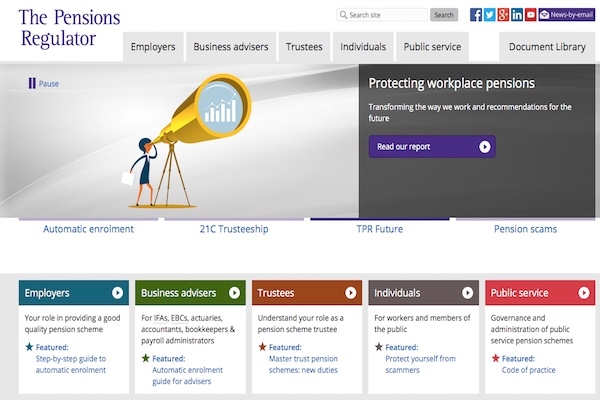The Pensions Regulator (TPR) has warned schemes they must produce a chair's statement which is compliant with the law, after fines against two were upheld in court.
In separate cases, trustees failed to include the required information in their annual statement and were issued fines by TPR.
Trustees appealed the decisions to the First-Tier Tribunal.
The judges on both tribunal cases agreed that penalties for non-compliance were mandatory, the chair's statements were non-compliant with the law and TPR was right to issue the fines.
Nicola Parish, executive director for frontline regulation at TPR, said: “Annual chair’s statements are an essential way to show pension savers that their scheme is being properly governed and will deliver the retirement benefits they are promised.
“That’s why it is the law for trustees to produce chair's statements and make sure they contain all of the necessary information.
“We are pleased that the judges in these cases agreed that under legislation, a mandatory penalty applies to chair's statements which are not compliant.
“As these cases clearly demonstrate, we are prepared to defend our penalties in court. We continue to expect high standards of trustees and will take action when chair's statements are not compliant with the law.”
In the case brought by EC2, trustee of Autoenrolment.co.uk, judge David Hunter QC ruled that the chair's statement for 2015/16 was “deficient in five respects”.
TPR fined the scheme trustee £2,000 for the breach, which was upheld.
The judge said the requirements stated schemes should not simply prepare an annual governance statement, but “prepare a statement containing a considerable amount of clearly specified and detailed information”.
The case brought by trustees of the Moore Stephens Master Trust was upheld by Judge David Thomas in one of three areas which were deemed by TPR to be non-compliant and the fine was reduced from £2,000 to £500.
The chair's statement was for the scheme’s 2016/17 year.
The judge ruled that as the scheme was a master trust with a professional trustee, and ran schemes for multiple employers, “some penalty” for the failure was “therefore appropriate”.

